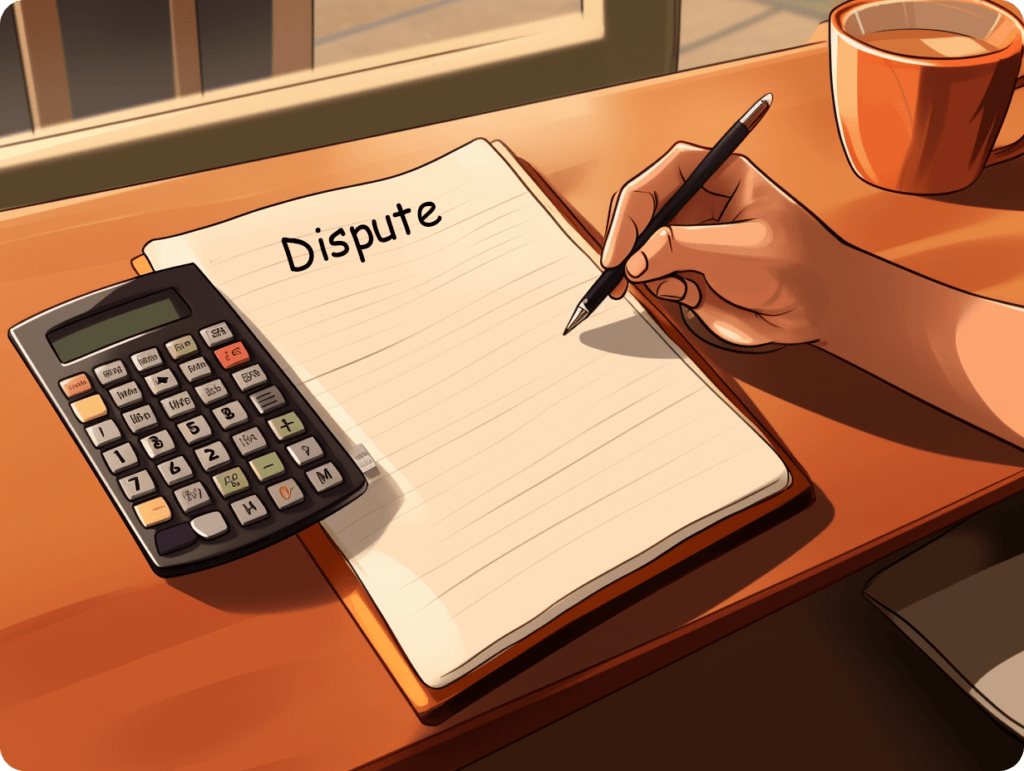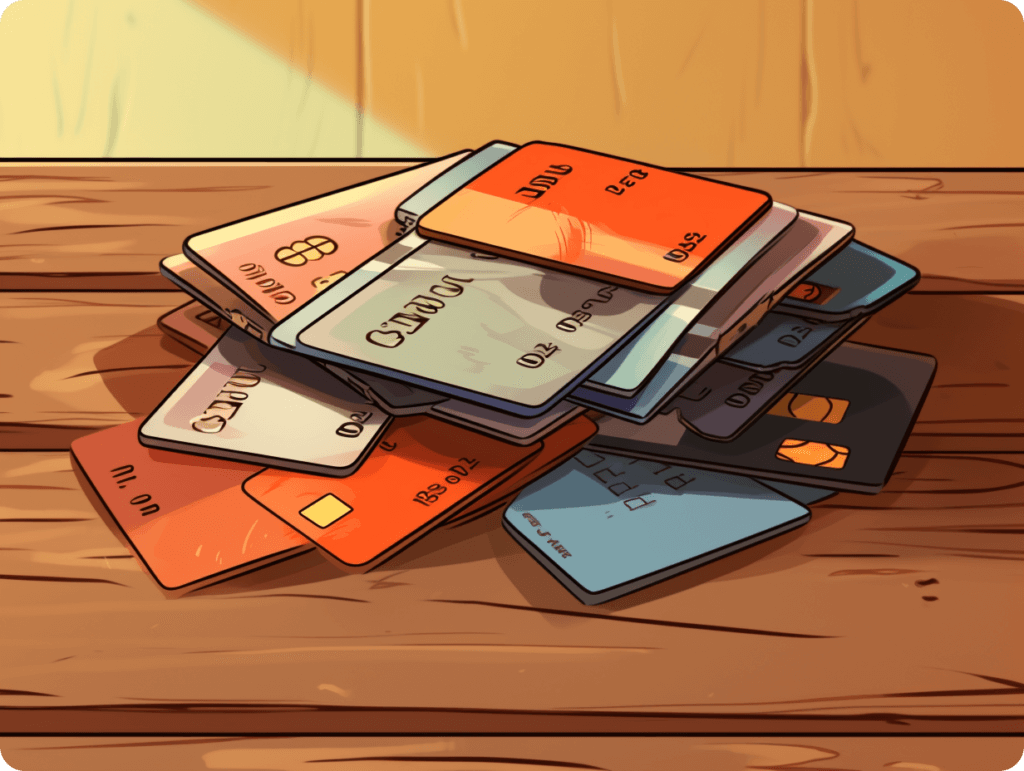- Blogs
- /
- What Can You Do With a Social Security Number? Discover 7 Exploits Here
What Can You Do With a Social Security Number? Discover 7 Exploits Here

Summary
Over 300,000 Americans become victims of various forms of identity theft yearly. Identity theft can be quite complex. The best way to picture it is to imagine someone sneaking into your home and taking over your financial life without an invitation.
When identity thieves get their hands on your personal info, they’ll often use it to wreak havoc on your finances. They could open bank accounts, swipe credit cards, and even file taxes in your name.
Trust us. Identity theft is a financial nightmare. It can seriously damage your financial stability and credit history.
That’s why we’ll answer the question of ‘what can you do with social security number’ and its effects on your credit history. We’ll also show you practical guides on how to avoid becoming a victim of identity theft.
Key Takeaways
- Identity thieves can use our social security number to open credit accounts, get medical care, and commit crimes in your name.
- Identity thieves need your Social Security number and personally identifiable information (PII). They use this information to commit fraud.
- Always check your credit report. That’s because fraudulent activities with your SSN reflect on your credit report.
- Avoid carrying around your SSN or sharing it with shady organizations and people.
- Safeguarding your Social Security number reduces your chances of having your identity stolen.
What Can You Do With Social Security Number?
Identity thieves can do several things when they access critical financial information. This includes your SSN and Personally Identifiable Information (PII).
Let’s take a quick look at some of them.
1. Financial identity theft is the most common type of fraud committed by thieves with stolen SSNs. Financial identity theft has resulted in losses worth billions each year. In 2022, Americans lost $43 billion, and that number was expected to hit $48 billion by 2023.
Over the years, identity thieves have gotten pretty good at opening a bank account in their victim’s name. They can also open a phone account, get a credit card or loan, and empty their victim’s bank account.
2. Social Security benefit frauds saw a sharp rise during the COVID-19 stimulus period. This identity fraud involves stealing people’s Social Security benefits and checks. In 2023 alone, Americans lost over 100 million in Social Security benefits fraud.
3. Tax identity theft, also known as Stolen Identity Refund Fraud (SIRF), may not be as frequent as financial identity theft. Still, identity thieves steal millions from their victims each year by filing fraudulent tax returns.
4. Criminal identity theft happens when bad actors use false identities to dodge criminal responsibility.
For example, criminals often make fraudulent driver’s licenses with their victim’s SSN. Doing this helps them avoid parking tickets by redirecting them to the original owner of the SSN.
In some cases, they can even avoid arrest, leaving the responsibilities to fall on the holder of the SSN. By doing this, they can commit crimes that’ll be on the SSN’s owner’s record.
And this can reduce the victim’s chances of securing employment and dealing with legal issues in the future.
5. Medical identity theft occurs when thieves use stolen identities to receive medical care. The thief may also get benefits like Medicaid and prescription drugs using the victim’s name.
This could lead to the victim getting associated with incorrect medical records that mark them as a drug user. In some cases, the victim could be denied much-needed medical care in times of emergency because they’ve maxed out their medical benefits.
6. Utility fraud occurs when fraudsters use your SSN and other personally identifiable information (PII) to set up their utilities using your identity.
In 2021, utility fraud cost Americans over $2.3 billion. And like other identity theft types, most people don’t become aware until they receive notices of unpaid bills.
7. SSN sales on the dark web. Identity thieves may also sell your SSN and other personal information to data brokers on the dark web. The brokers can then use the information for nefarious purposes.
Tops Signs Your SSN Has Been Stolen
Several signs could show that your social security number has been stolen. Unexplained withdrawals or charges on bank statements could suggest that someone else is using your account without your knowledge. Getting calls from collection companies may also indicate unauthorized account use.

Also, if you start receiving bills or collection notices for unfamiliar accounts, it could be a sign that your identity is compromised.
Another red flag is noticing unauthorized changes to your credit report. Strange entries in your report or any suspicious activity related to your credit history could mean someone has used your SSN for fraud.
One more thing. Ensure you look out for any notification from the post office alerting you to a change of address. Identity thieves will alter your address to redirect mail. This includes new or replacement credit cards. They send them to an address they control.
Here’s How Identity Thieves Operate
First, it’s worth noting that committing fraud with just someone’s Social Security number is tricky. But one thing that’s made it so common is that thieves usually find a person’s SSN on documents with other Personally Identifiable Information (PII).
We saw this happen during the Equifax leak. It also happens when folks lose their wallets or purses containing their social security card and driver’s license.
Stolen PII can have severe consequences. When personal information like your social security number is compromised, the risk of identity theft increases dramatically.
Identity thieves use various methods to get people’s SSNs and other personally identifiable information illegally. But, one of their preferred methods is carrying out data breaches. They can get large amounts of sensitive information electronically from an organization’s databases.
Thieves usually get their victim’s Social Security Number before committing fraud. They then try to get other crucial information to combine with the victim’s SSN.
After getting the SSNs, these scammers move over to phishing scams and emails. They trick people into providing personal details under false pretenses.
And yes, physical theft is rare, but it remains a solid method identity thieves use to get SSNs. Most criminals steal documents containing SSNs from homes or offices directly and sell these details on the dark web for profit.
Consequences of Identity Theft
Getting your social security number stolen can lead to severe and long-lasting consequences. First, your credit score could get damaged, making obtaining loans and mortgages challenging.
But it doesn’t stop there because identity theft can potentially cause some damage to your criminal record. That could affect your job opportunities. That’s because potential employers may discover fraudulent activities associated with your name during a background check.
To make matters worse, resolving these issues requires time-consuming efforts. These efforts include disputing unauthorized transactions. They also involve rectifying incorrect information on the records of the major credit bureaus.
And if that’s something you’re struggling with, you should contact a reliable credit repair company. Doing this would make it easier to dispute and clear inaccurate information from your credit report.
Legal Implications of Using Stolen SSNs
Unauthorized use of someone else’s social security number is illegal and punishable by law. Anyone who uses stolen social security numbers for identity theft can face criminal charges. And yes, this can lead to fines and imprisonment.
The penalty duration for someone who stole Social Security numbers varies. The punishment depends on the severity of the crime. It also depends on the amount of financial loss incurred.
Not to mention that it also depends on the laws of the specific jurisdiction where the offense occurred.
But generally, the terms can range from less than a year to a few decades. We saw this when Eric C. Conn was sentenced to 27 years for participating in the largest social security fraud scheme.
Victims of identity theft are often required to prove that they did not permit their Social Security number to be used for fraud.
If your SSN gets stolen, contact the necessary government agencies, financial institutions, and credit bureaus immediately. Report the incident and start working towards restoring your identity.
5 Strategies for Protecting Your SSN and Personal Information

1. Follow Basic Safeguarding Measures
Keeping your social security card in a safe place is the first step to protecting your identity from being stolen. Avoid carrying it around unless necessary to reduce the risk of loss or theft.
Shred any documents containing personal information, like social security numbers, before throwing them away. Doing so can prevent unauthorized people from going through your trash. This helps stop them from accessing this sensitive information.
2. Be Cautious When Sharing Personal Information
Avoid sharing your social security number, primarily online or over the phone. Be cautious when providing personal information on websites. Also, be extra careful when responding to unsolicited requests for this sensitive data.
Scammers often try to get social security numbers through phishing attempts and fraudulent schemes.
When interacting with businesses that ask for your SSN, make sure to ask why and how they plan to use your SSN. Also, check if you can present another form of identification instead.
Offering a backup like your driver’s license is a better way to be safe because most companies won’t cover losses if your SSN is exposed.
One more thing: Don’t use one password for everything. Always use strong and unique passwords for all online accounts. Always use complex passwords that include a mix of letters, numbers, and special characters.
This way, you can enhance the security of your accounts. It also reduces the risk of any identity thief getting unauthorized access to your SSN and personal information.
3. Use Fraud Alerts
If you suspect someone has gained unauthorized access to your social security number, consider placing a fraud alert on your credit reports.
Fraud alerts notify potential creditors to take extra steps to verify an individual’s identity. They do this before extending credit in their name.
Also, choosing electronic statements and payments instead of traditional mail can help reduce the risk of mail theft. This could lead to someone accessing sensitive documents without your consent. And these documents could contain your social security number.
Constantly check your credit reports from all three major credit bureaus—Equifax, Experian, and TransUnion. This will help you detect potential breaches as soon as they happen.
Keep an eye out for new accounts opened in your name without your knowledge. If you spot any discrepancies, it might suggest someone has stolen your social security number.
4. Take Online Precautions
With all the constant data breaches, most folks think it’s impossible to protect their social security number online.
But, you can take some super simple steps to safeguard your personal information in the digital realm. First, it’s crucial to exercise caution when sharing any personal details on social media platforms or online forums.
Avoid divulging your SSN or other sensitive information unless absolutely necessary. Regularly updating your privacy settings can add a layer of protection. Doing this ensures that only trusted people can access your personal data.
Ensure you’re selective about accepting friend requests from unknown people. Scammers and identity thieves are skilled at using fake profiles.
5. Data Breach Responses
In a data breach, millions of pieces of sensitive information can be accessed by cybercriminals. In times like those, knowing what to do is crucial.
The organization that experienced the breach has your financial information. So, in this situation, promptly follow any recommended actions the affected company provides.
If you suspect one of your accounts has been compromised due to a data breach, ensure you change every password associated with that account. Also, enable two-factor authentication. This adds an extra layer of security against unauthorized access.
If your account information was compromised, it’s advisable to go to identitytheft.org. It’s a government website that can help you assess the situation and understand what you have to do next.
How to Respond to Unauthorized Access of Your SSN

1. Verify Your SSN Status
Request a Social Security Earnings Statement from the SSA to verify your reported income. Review this statement carefully to ensure that all the income reported under your SSN belongs to you.
Check your annual Social Security statement for any discrepancies. Look for unfamiliar employment records associated with your SSN.
If you notice any irregularities, report them immediately to the SSA. They will investigate further. If there’s been fraudulent use of your social security number, they will take necessary actions.
2. Take Immediate Actions
If you notice suspicious activity or suspect someone has gained unauthorized access to your social security number, take immediate action.
Start by contacting your bank and credit card companies. Inform them about the potential theft of your social security number. This will help prevent any unauthorized transactions or account openings.
Next, change the passwords for all your online accounts. This step is essential. It prevents unauthorized access to your personal information and financial accounts.
By updating your passwords, you can add extra protection against potential misuse of your social security number.
Also, you must file a police report if you believe someone has obtained unauthorized access to your social security number. Keeping a record of all communication related to the theft will be beneficial. It will provide evidence and help investigations into the matter.
3. Contact the Federal Trade Commission
Contact your banks and change your password. Make sure to report the theft of your SSN to the Federal Trade Commission (FTC).
The FTC serves as a central point where consumers can report identity theft incidents and receive help in creating a recovery plan.
Once you’ve contacted the FTC, contact your local law enforcement agency once you discover an unauthorized use of your social security number. Give them every relevant detail. It’ll help them investigate and address this serious breach of personal information.
Also, don’t forget to inform the three major credit bureaus of the theft of your SSN. This move is critical to protect you from financial harm. And that’s because the identity thief could misuse your stolen social security number.
Requesting a fraud alert or credit freeze from these bureaus can help prevent scammers from using your stolen personal information to open new accounts.
4. Freeze Your Credit
One effective way to safeguard against identity thieves using your SSN is to contact the major credit bureaus. and freeze your credit reports.
A credit freeze stops anyone from accessing your credit report. Doing this is perfect for stopping potential creditors from performing a hard inquiry on your credit report. It also prevents them from opening new credit accounts in your name.
It’s worth noting that freezing your credit is free of charge. You can do it from your phone by contacting each credit bureau directly.
And yes, you can temporarily lift or permanently remove a credit freeze whenever you want. For instance, you can temporarily lift your credit freeze. You might do this when applying for legitimate loans or other financial services.
5. Start a Self-lock on Your SSN
Even though it’s impossible to freeze your SSN, You can use Self Lock to lock your Social Security online through the E-Verify platform.
But you can also unlock your Social Security number when needed. For example, a potential employer may need to confirm your identification as part of the hiring procedure.
How to Recover From Identity Theft

1. Contact Relevant Authorities
If you suspect someone has used your social security number for fraudulent activities, there are crucial steps to take. First, contact the Social Security Administration (SSA) to report the theft. Discuss possible remedies with them so you can know what your next step should be.
Then, work closely with your financial institutions and creditors. Dispute any fraudulent charges or accounts opened in your name. Remember to keep detailed records of all conversations, correspondence, and documents. These records could serve as evidence if anything else comes up.
Remember, you must act fast when dealing with SSN identity theft. Reporting the incident to the SSA can cut the potential damage caused by unauthorized use of your personal information.
Work with relevant parties like banks and credit card companies to help you curtail the negative impact on your account.
2. Get Credit Repair
After experiencing social security number theft, focusing on credit repair is essential. Make it a habit to regularly review your credit reports for any inaccuracies resulting from the theft. Dispute these errors promptly so they don’t damage your credit score.
Also, pay all your bills on time, start budgeting, and reduce your debt. Most importantly, maintain good financial habits, as it can hasten your credit recovery.
Rebuilding your credit score after identity theft can be challenging. But, you can restore your creditworthiness over time by taking proactive measures. You can do this by disputing inaccuracies in your credit reports and maintaining healthy financial habits.
3. Get Legal Help
Consider consulting with an attorney who specializes in identity theft cases. They can guide you through every available legal option, like pursuing compensation for damages caused by the theft.
Legal recourse often allows victims of SSN-related identity theft to hold responsible parties accountable for their actions. It may also help victims secure compensation for any damages due to the unauthorized use of their personal information.
4. Emotional Impact
One thing that’s often ignored is the emotional impact folks struggle with after having their social security number stolen.
This emotional impact often leaves folks feeling vulnerable and violated. Not to mention that it also causes significant stress and anxiety for victims who’ve fallen prey to identity theft.
During this challenging time, ensure you get emotional support. This can come from friends, family members, or professional counselors. This would make coping with the emotional toll you’re experiencing much easier.
The Bottom Line
By understanding the different strategies, options, and help programs available, you can confidently navigate the path to homeownership. Remember, it’s not just about the money you save. It’s also about making informed decisions. These decisions should align with your financial goals and aspirations.
With determination and the proper knowledge, you’re on your way to achieving your dreams of homeownership.
Now, armed with these insights, take action! Start implementing saving strategies. Explore down payment options. Consider assistance programs that can help you own a home. Keep your eye on the prize and stay committed to your goal. Your future self will thank you for taking these steps today.
FAQs
1. How much should I save for a down payment on a house?
Aim to save at least 20% of the home’s purchase price for your down payment. This can help you avoid private mortgage insurance (PMI) and secure better loan terms.
2. What are some effective strategies for saving for a down payment?
Consider automating your savings. Cut unnecessary expenses. Explore first-time homebuyer programs or employer assistance. Setting up a separate savings account for your down payment can help you track progress.
3. Are there options available to assist with making a down payment on a house?
Yes, FHA loans are government-backed loans. VA loans are for veterans. USDA loans offer low or no-down-payment alternatives. Some states provide down payment assistance programs that can be beneficial.
4. Is it possible to buy a house without making a traditional down payment?
Yes, alternative pathways, such as physician loans or VA loans, allow qualified individuals to purchase homes with little or no money down. However, these options may come with specific eligibility criteria.
5. How long does saving enough money for a down payment on a house typically take?
The timeline varies depending on individual circumstances and savings habits. It could take several years of consistent saving while factoring in other financial obligations and unexpected expenses.
Our Latest Blogs:
FREE Strategy Session to Fix Your Credit Blogs / Facebook Twitter Linkedin Instagram Share Summary Have you ever wondered...

ThisIsJohnWilliams

ThisIsJohnWilliams

ThisIsJohnWilliams
FREE Strategy Session to Fix Your Credit Blogs / Facebook Twitter Linkedin Instagram Share Summary Every savvy entrepreneur understands...

ThisIsJohnWilliams

ThisIsJohnWilliams
FREE Strategy Session to Fix Your Credit Blogs / Facebook Twitter Linkedin Instagram Share Summary Your credit score is...






